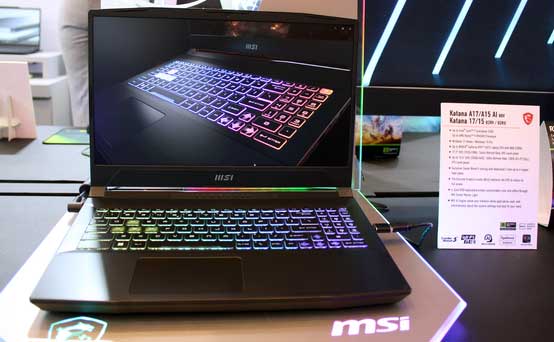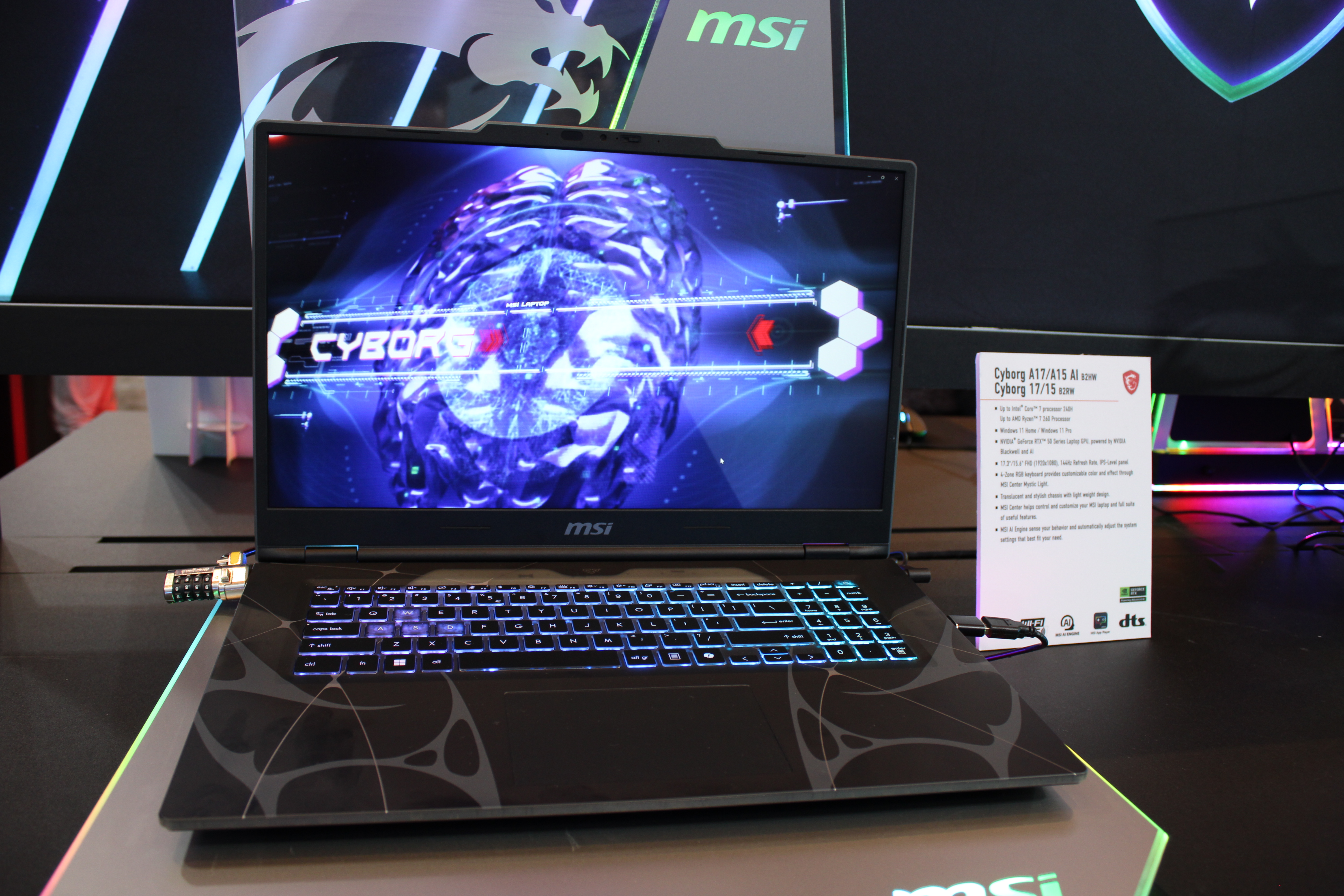The arrival of AMD chips in MSI laptops is a huge win for gamers
The arrival of AMD chips in MSI gaming laptops at CES in Las Vegas a few weeks ago signals that Intel has competition in a space it is used to dominating.

I’ve always associated MSI with Intel chips, because every MSI gaming laptop I’ve reviewed has come with one. It had nothing to do with what was available at the time for me to review, either; Taiwan-based MSI has long partnered with Intel for processors.
Even when MSI started using chips from AMD — the Intel competitor less than two miles away in Santa Clara, California in its gaming laptops — many of MSI laptops still only came with an Intel option.
But this year at CES in Las Vegas, an AMD chip was listed on nearly every one of the little display cards that sat next to new MSI laptops.
This was a huge departure from what MSI has done in the past — and maybe a sign that Intel may be up for a fight if it wants to continue its domination of the mobile gaming space.
“The [AMD] X3D solution largely benefits gamers, so we brought the technology to our gaming flagship Raider series.”
— An MSI rep to Laptop Mag on why AMD chips are coming to MSI laptops
MSI reps tell Laptop Mag via email it still considers Intel “the leader in the professional industry,” but now that AMD has expanded its mobile chip catalog, MSI wanted to give more options to different types of users.
The popular AMD Ryzen X3D processor, which can produce higher frame rates and smoother game play for demanding AAA games, is one example of an AMD chip that MSI wanted to utilize in its laptops.
“The X3D solution largely benefits gamers, so we brought the technology to our gaming flagship Raider series.”
Sign up to receive The Snapshot, a free special dispatch from Laptop Mag, in your inbox.
MSI went beyond its Raider laptop series this year at CES, announcing the following new configurations (in addition to Intel options):
- AMD Ryzen 9 9955HX3D for the Raider
- AMD Ryzen 9 9955HX for the Vector
- AMD Ryzen AI 7 350 for the Pulse
- AMD Ryzen 9 8945HX for the Crosshair
Of course, none of those AMD Ryzen chips were around at CES last year. MSI debuted new Raider, Vector, Pulse, and Crosshair gaming laptops with Intel 14th-gen or Core Ultra processors — though the company released an AMD Ryzen 9 7945HX3D version of its Raider gaming laptop later in 2024.

Still, the AMD Ryzen 8000 series existed last year, yet MSI did not include that configuration in its Crosshair gaming laptop or any of its higher-tier gaming options. Its nostalgic '90s budget Cyborg launched with only an Intel option last year, but this year it will feature up to an AMD Ryzen 7 260 chip.
The new Katana gaming laptop is listed with either an AMD Ryzen 9 8945HS option or the new Intel Arrow Lake processor this year at CES, too. The Stealth is also getting a boost to an AMD Ryzen AI 9 HX 370 (up from the Ryzen AI 9 365 version Laptop reviewed in November 2024).
The only gaming laptop without an AMD option is the Titan 18 HX Dragon Edition Norse Myth. As MSI tells Laptop Mag, the Dragon Edition is a special edition laptop that will be available in limited quantities.
AMD in MSI laptops is a huge win for gamers
This many AMD configurations is a huge win for gamers. Anyone who might have wanted an MSI gaming laptop but opted not to buy one because it didn’t come with an AMD chip can now include MSI in their decision process. From high-end to budget options, there’s a configuration for almost anyone. There’s no shortage of choices. But it also feels like there is a rift between gaming laptop makers and Intel, one that perhaps has been growing for a while, and we’re just now starting to see its width.
Between AMD making significant leaps in mobile gaming and Intel tripping over hurdles (remember the great 14nm saga of 2021?), a tug-of-war between the two chipmakers has been playing out in yearly laptop announcements. My own memories stretch back to MSI’s budget-priced Bravo 15 (2020), but the company has been working with AMD since before it released that laptop — yet it’s been slower to adopt a full slate of AMD-powered products, as we’ve seen from past announcements.
Now that MSI has gone the whole hog with AMD configurations, it will be the company to watch once gaming laptop reviews start flowing — not just for the quality of those products, but how they compare to their Intel counterparts.

Joanna Nelius is a contributing writer to Laptop Mag. She has reported on and reviewed laptops for The Verge, Gizmodo, PC Gamer, and USA Today.
